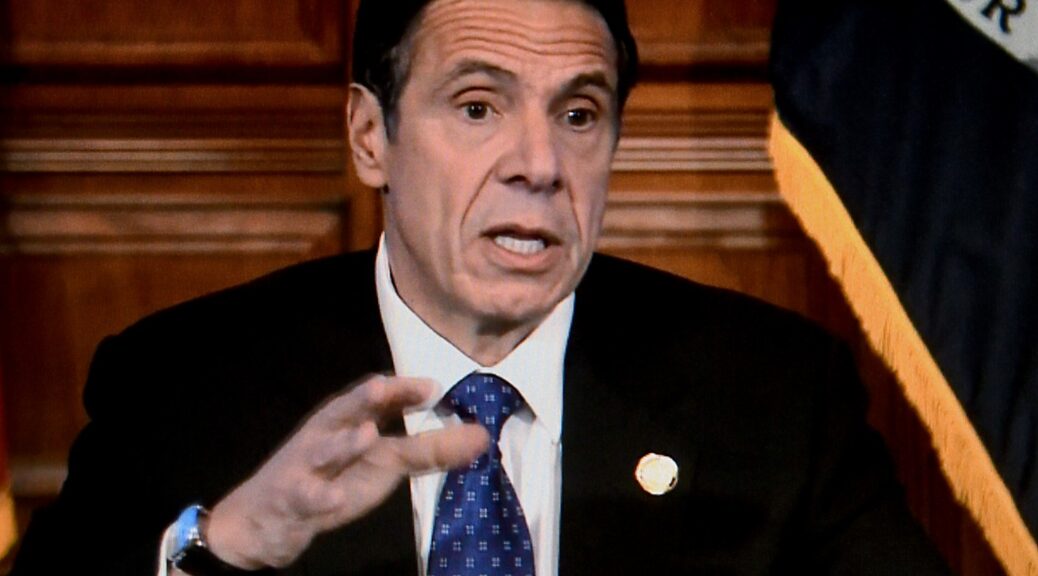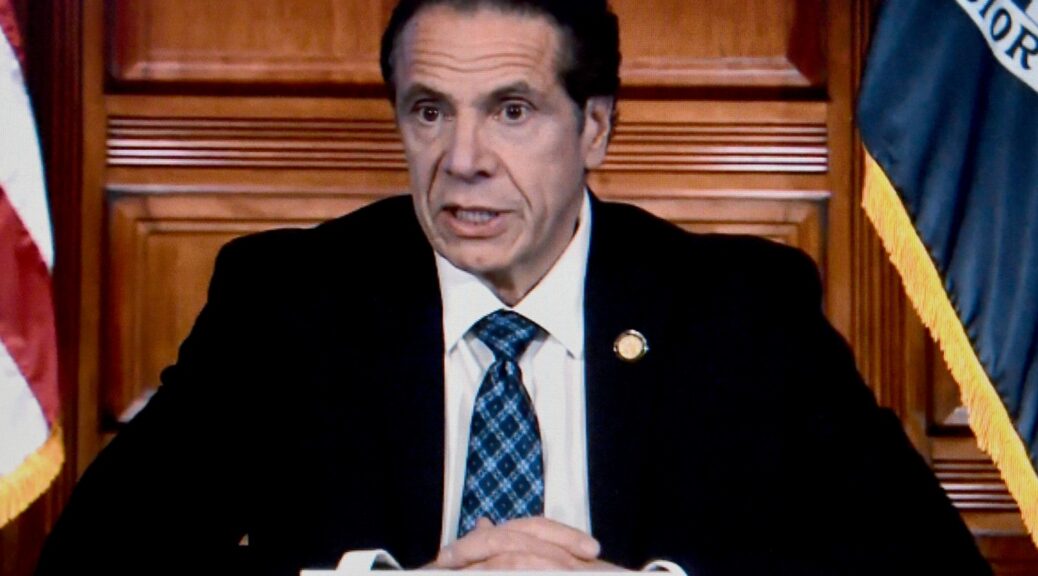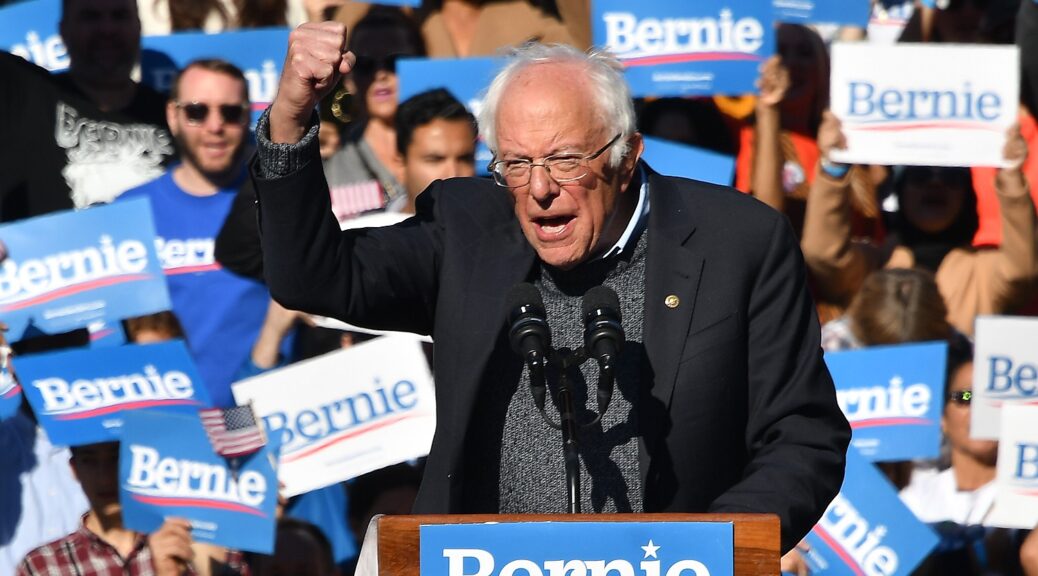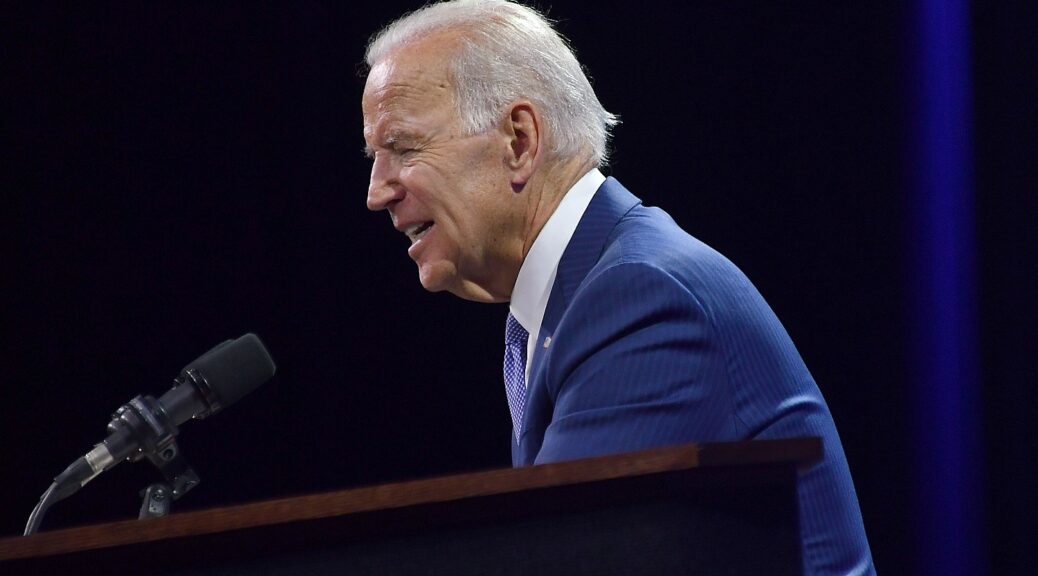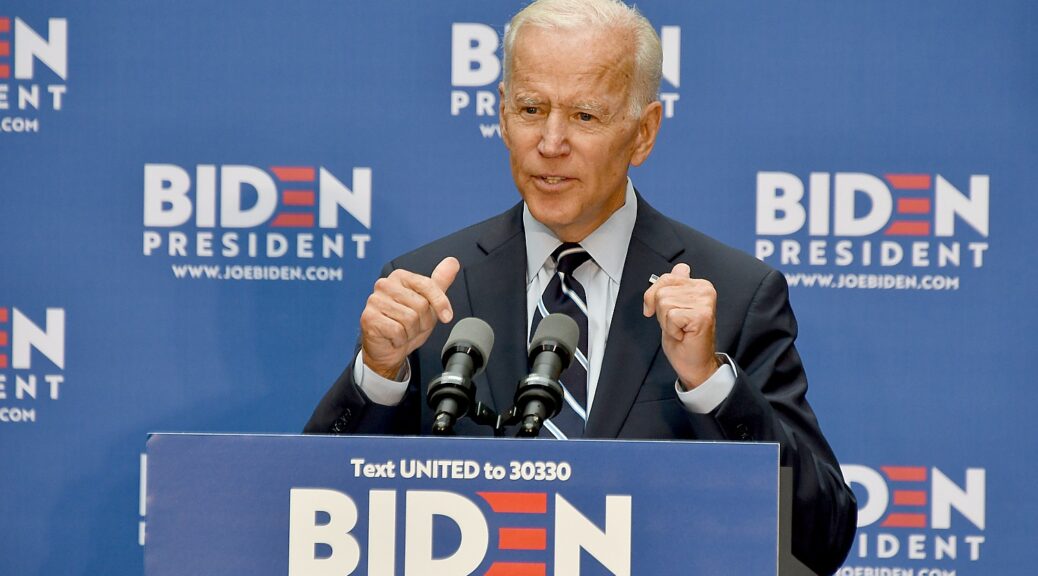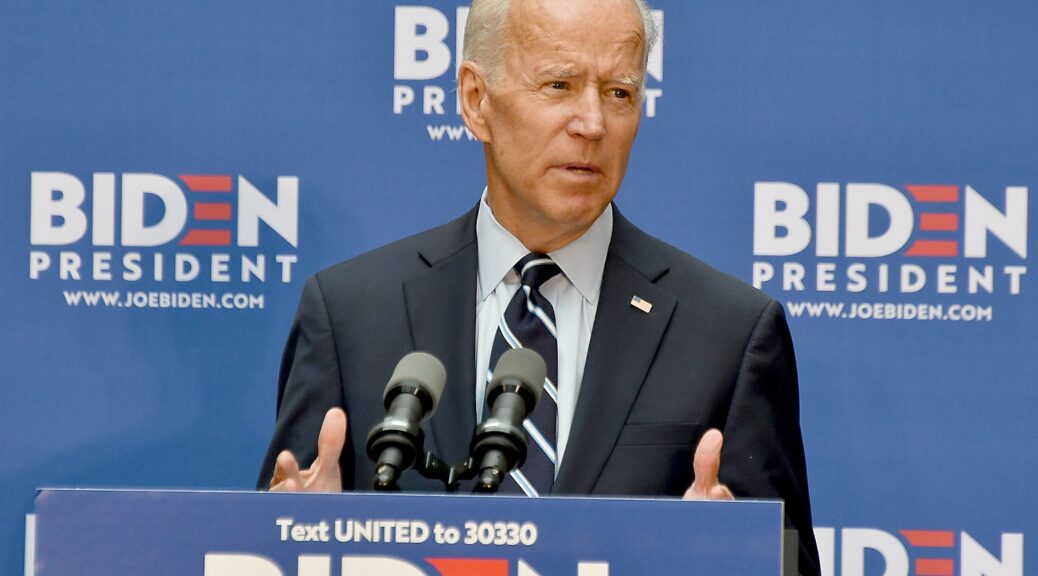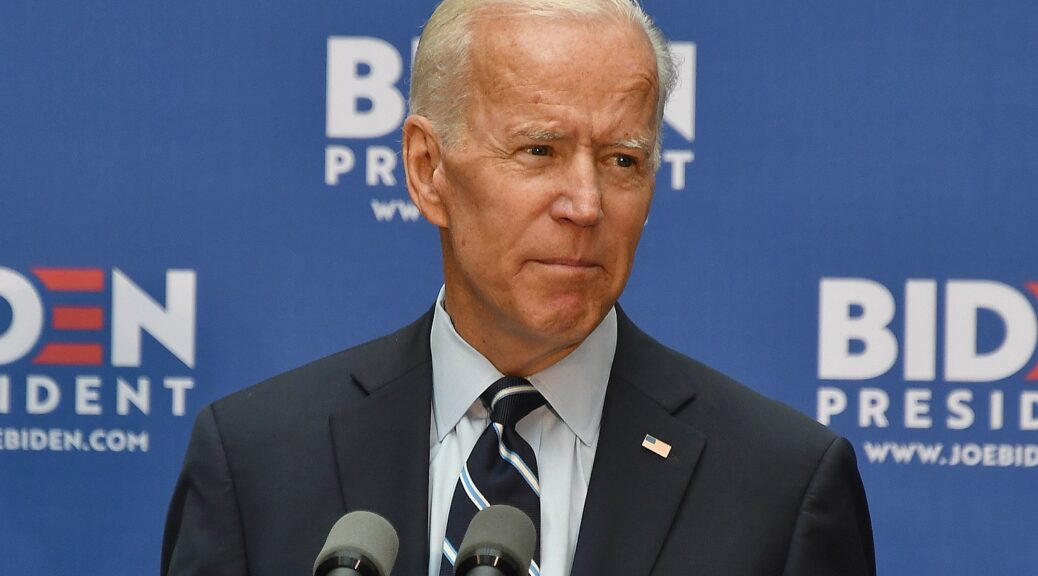
MINNEAPOLIS, MN — Today, Senator Amy Klobuchar released a plan to prepare for and respond to the coronavirus in rural America.
As a senior member of the Senate Agriculture Committee, Senator Klobuchar has long been a leader in tackling the challenges that rural communities face. She believes our country needs to take immediate action to respond to the pandemic’s spread to rural America by strengthening rural hospitals and rural health care systems, supporting farmers and ensuring the continuity of the agricultural supply chain, and helping small businesses, workers and other critical aspects of the rural economy.
“We’re facing a national crisis — it affects every American, no matter where they live,” said Senator Amy Klobuchar. “While COVID-19 may be slower to spread to some rural areas, its impact will likely be just as serious, as we’ve seen in places like Albany, Georgia and Martin County, Minnesota. From expanding access to health care, to supporting farmers, to helping small businesses, we need to ensure that all communities across rural America are not left behind and have the resources they need to respond to this pandemic.”
Plan to Prepare For and Respond to the Coronavirus in Rural America
The coronavirus pandemic is a national crisis — it affects every American, no matter where they live. While COVID-19 may be slower to spread to some rural areas, its impact is expected to be as serious as it has been in urban areas. Rural Americans are more vulnerable to the virus but are often less able to access treatment. Rural Americans are more likely to be older and have serious chronic medical conditions — two of the greatest risk factors for severe illness from COVID-19. At the same time, people living in rural America are more likely to be poor and uninsured, making it difficult for them to afford treatment. And many rural hospitals and health care systems have fewer ICU beds and resources and could quickly become overwhelmed if they experience even a minor surge in critical patients.
Many rural communities are already facing these challenges. In Georgia, the rural city of Albany has been badly hit by pandemic — in early April it had one of the highest percentages of confirmed cases anywhere in the country and the National Guard has been deployed to help the local hospital. The town, whose residents are predominantly African American, also highlights the impact that our country’s response to the virus in rural America has on people of color — one in five rural Americans is a person of color or an indigenous person, and the coronavirus appears to be infecting and killing people of color at a disproportionately high rate.
In addition to the public health crisis rural communities are confronting, they are also facing an economic crisis. The farming and agriculture industry is seeing major disruptions due to the coronavirus, which will not only hurt rural areas, but could lead to higher food prices for consumers across the country. Small businesses, which are the backbone of many rural economies, are being hit hard, and rural workers are struggling to access child care, broadband, and many other critical services during the pandemic.
As a senior member of the Senate Agriculture Committee, Senator Klobuchar has long been a leader in tackling the challenges that rural communities face. She believes our country needs to take immediate action to respond to the pandemic’s spread to rural America by strengthening rural hospitals and rural health care systems, supporting farmers and ensuring the continuity of the agricultural supply chain, and helping small businesses, workers, and other critical aspects of the rural economy. The only way to beat this pandemic is to fight the virus together, and that means making sure that every community — from the biggest city to the smallest town — has the resources and support they need to respond to this crisis.
Rural Health Care
Rural health care systems are on the front lines of combating the coronavirus, but many are facing shortages of critical resources that they will need to treat patients — from ICU beds and ventilators, to doctors, nurses and other health care workers staffing the hospitals, to testing and personal protective equipment. We need to anticipate these challenges in areas that haven’t yet seen a surge in cases and make sure that we’re getting rural health care systems the support they need to keep people safe.
Rural Hospitals and Health Clinics
Provide rural hospitals the resources they need to confront the pandemic. Rural hospitals, including Critical Access Hospitals, provide essential medical services to rural communities, but they also often have smaller operating margins than larger hospitals. Right now, they face added financial pressure due to increased expenditures to prepare for an influx of patients with COVID-19 at the same time they have had to cancel elective procedures, which are normally a major source of revenue. We need to take action to make sure these hospitals remain able to serve rural communities, especially during this crisis. Senator Klobuchar is calling for an expedited process with dedicated support for Critical Access Hospitals and other rural hospitals to immediately receive grants and loans they need to purchase supplies, modify their facilities, and pay their staff. She is pushing for an expansion of the $100 billion Public Health and Social Services Emergency Fund so that funding is available for hospitals that are likely to experience a surge of patients later in the crisis, including many in rural America. She is also calling for a longer timeline for repayment and other necessary flexibility under the Medicare Accelerated Payments Program so rural hospitals have the time they need to regain their financial footing and she is calling for changes to ensure that small publicly-owned hospitals are eligible for the Payment Protection Program. In addition, Senator Klobuchar has championed legislation to help hospitals in rural areas stay open by creating a new Rural Emergency Hospital classification under Medicare to give hospitals more support if they maintain an emergency room and provide outpatient services. She also supports providing ongoing financial relief by making the suspension of the two percent Medicare automatic reimbursement cut permanent for rural hospitals and considering what other temporary relief may need to be extended to allow rural hospitals to recover financially from the impact of the pandemic.
Temporarily reopen recently closed rural hospitals when possible. Senator Klobuchar is calling for the Department of Health and Human Services to explore funding and regulatory flexibility to temporarily reopen some of the over 120 rural hospitals that have closed in the last decade. Temporarily reopened facilities could help provide overflow support to hospitals that have reached capacity and provide an option for basic levels of care for rural residents to limit pressure on larger hospitals.
Support rural health clinics. Many rural communities don’t have easy access to a hospital and instead rely on rural clinics for their health care. We need to make sure that these clinics have the resources they need to effectively diagnose and treat patients who may not need to be hospitalized, or who come to them before hospitalization. Senator Klobuchar is calling for increased support for the USDA’s Community Facilities Direct Loan and Grant Program, additional support for community health centers — over half of which are in rural areas — and specifically targeting additional small business assistance to health care providers. To strengthen the long-term financial health of rural health care providers, Senator Klobuchar supports adjusting Medicare’s geographic practice cost index to reflect the actual costs of providing health care in rural areas.
Health Care Workers and Supplies
Strengthen the rural health care workforce. On average, rural areas have half as many physicians per capita as urban areas, and rural areas face shortages of nurses, physicians assistants, specialists, and other medical providers. Senator Klobuchar is calling on the Department of Health and Human Services to provide the maximum possible flexibility to rural health providers to develop adaptable staffing plans to respond to increased demand and compensate for workers who may become sick or need to isolate. She has also called on the Department of Homeland Security to provide additional flexibility for foreign medical workers in the United States on temporary visas. Many health care workers in rural areas are also facing challenges with child care, especially in child care deserts that already have a shortage of child care facilities. Senator Klobuchar is calling for dedicated funding to set up temporary child care facilities for health care and other critical workers in child care deserts. To address rural workforce shortages more broadly, Senator Klobuchar supports building on the Conrad 30 program that allows international doctors trained in the United States to extend their stay in the country if they agree to practice in underserved communities. She also supports expanding student loan forgiveness programs for health care and long-term care workers practicing in underserved areas.
Ensure rural areas have access to necessary medical supplies and testing. Medical facilities across the country face a shortage of necessary medical supplies including personal protective equipment, testing supplies, hospital beds, and ventilators. As competition for supplies has intensified, rural health providers, with less available cash and smaller economies of scale, are at a significant disadvantage. Senator Klobuchar is calling for additional funding to hospitals to purchase these critical supplies and specific consideration of the needs of rural areas when designing federal, state, and regional supply distribution strategies and when allocating equipment from the National Strategic Stockpile.
Health Policies that Work for Rural America
Target public health messages for rural areas. The coronavirus pandemic is a national crisis and public health communications should reflect all parts of the country. Senator Klobuchar is calling for consistent and targeted messages from public health agencies to highlight the importance of preparation and prevention in rural areas. Public health officials also need to provide practical information to those living in rural areas who cannot stay at home for financial, medical or safety reasons and may need to continue to travel significant distances during the pandemic.
Address racial disparities in health outcomes. Senator Klobuchar is calling for the Department of Health and Human Services to provide rural health systems information and tools they need to address racial disparities in health outcomes from coronavirus. She has also called on the Centers for Disease Control and Prevention to provide demographic and racial data about the impact of coronavirus and for the Administration to increase outreach to minority communities disproportionately impacted by the virus, including those living in rural areas.
Increase regional collaboration. Small rural health care providers are less likely to have additional resources to reallocate internally to respond to sudden increases in demand or shortages of personnel and equipment. Senator Klobuchar is calling for the Department of Health and Human Services to develop best practices for local regional cooperation among health care providers during the pandemic. She will also push for needed regulatory flexibility and additional funding for the Hospital Preparedness Program to facilitate cooperative agreements.
Expand access to telehealth and virtual visits. Telehealth services can protect patients and providers from exposure to coronavirus while still responding to patients’ medical needs. This is even more important in rural areas where patients could otherwise have to travel long distances to receive care, further increasing the possibility of exposure and transmission. To build on the temporary flexibility already provided for some telehealth services, Senator Klobuchar is leading bipartisan legislation to expand telehealth programs and support access to technology for virtual visits to help protect vulnerable populations from possible exposure to the virus. She also supports permanently reforming Medicare telehealth rules that unfairly limit coverage and reimbursement so that rural communities can continue to benefit from strong telehealth options after the pandemic.
Farmers and Agriculture
Spring is a critical planting and harvesting time for many American farmers, and they are facing major disruptions due to the pandemic. If farmers are unable to plant their crops or get their goods to market, that could devastate many rural economies and hurt consumers, who will see higher prices for their food at a time when budgets are already stretched too thin. We need to make sure that we are providing farmers and farm workers with the support they need to survive this crisis and continue to get food to Americans across the country who need it.
Immediate Support for Farmers
Provide farmers financial relief. The coronavirus pandemic is causing new disruptions across the agricultural sector for producers who have already been dealing with persistently low commodity prices, economic uncertainty, and tight farm lending regulations. Senator Klobuchar has called for the Farm Service Agency to provide clear guidance, consider targeted loan forgiveness measures, and expand efforts to ensure farmers have reliable access to credit. She is calling on USDA to fully use the Agricultural Mediation Program to resolve credit issues in a way that works for both farmers and lenders. Senator Klobuchar is also calling for the Small Business Administration to allow for the broadest possible access to the Paycheck Protection Program and the Economic Injury Disaster Loans in rural America, including by allowing Farm Credit System institutions to serve as lenders where many farmers and rural businesses have already established relationships. Building off bipartisan legislation led by Senator Klobuchar that was recently passed into law to expand access to Chapter 12 bankruptcy for family farmers, Senator Klobuchar is also calling for outreach to farmers about eligibility for and the benefits of this option, which allows family farmers to reorganize and keep the farm after falling on hard times.
Address low commodity prices. As a senior member of the Agriculture Committee, Senator Klobuchar worked to write and pass three farm bills with strong farm safety nets for our farmers. These safety nets are more important than ever as farmers, ranchers and other agricultural producers are facing direct losses from disruptions caused by the coronavirus pandemic and futures for most agricultural products indicate that these losses are likely to continue. These losses are being experienced across the board with reports of dairy farmers suffering $5.7 billion in losses in the last five weeks, hog producers estimating they will lose $37 per pig for the remainder of the year, and cattle ranchers facing a 30 percent loss to the value of their cattle since the beginning of the year. Senator Klobuchar is calling for additional short-term support to producers as needed through dedicated disaster funding and the Commodities Credit Corporation. To provide stability for farmers as they recover from the effects of the pandemic, Senator Klobuchar is calling for indexing farm safety net support levels to reflect changes in our country’s cost of production, low commodity prices, and loss of global market access. She is also calling for fully funding permanent disaster programs and improving support levels, loan rates and program delivery. Senator Klobuchar also is pushing for improving and expanding commodity support and federal crop insurance programs and increasing the average premium subsidy for crop insurance.
Protecting Farm Workers
Protect farm workers and food processors on the job. Workers on farms and at food processing facilities often work in crowded conditions that present an opportunity for the spread of coronavirus. Senator Klobuchar is calling for updated Occupational Safety and Health Administration rules to keep these workers safe, increased training on best practices available in appropriate languages, and support for farms and businesses to provide appropriate personal protective equipment to employees and adjust their operations to lower the likelihood of coronavirus transmission among their workers. The closure of the Smithfield Foods processing plant in Sioux Falls, South Dakota, demonstrates how the lack of national testing and public health response can disrupt food supplies and put workers at risk.
Support health and safety for agricultural workers. Many agricultural workers lack access to health care and housing appropriate for social distancing or quarantining. Senator Klobuchar is calling for increased support for the National Center for Farmworker Health and other programs at the Health Resources and Services Administration that support farm worker health. In addition, she is calling for emergency housing for agricultural workers to limit the spread of the virus among workers at home, provide a safe place for workers who need to self quarantine, and to make it easier for unemployed Americans to relocate to areas where agricultural jobs may be available. She is also calling on the Administration to provide clear, long-term guidance that will allow immigration programs for temporary farm workers to operate at a level consistent with past years even as consular services are reduced.
Ensuring the Continuity of the Supply Chain
Ensure the continuity of the food supply chain. Complex supply chains connect farmers to consumers. Disruptions in any portion of the supply chain can ripple through and create additional challenges for producers or shortages for consumers, especially when it comes to highly perishable products such as fruits and vegetables. Among others, truck drivers play a critical role in this supply chain. Senator Klobuchar is calling for actions to protect the safety of workers throughout the supply chain and minimize disruptions of interstate freight operations. That means clear federal standards and enforcement for employee health and safety, exemptions from travel restrictions for workers critical to supply chains, temporary flexibility on commercial drivers license renewals, and efforts to maintain rest areas and other services important to the safety of commercial vehicle operators. She also is calling for emergency funding for ports and other intermodal facilities that may see temporary reductions in demand but will be essential for responding to shifting supply chains as the pandemic progresses. She is calling for additional flexibility for USDA inspectors to increase the use of virtual certifications and overtime as necessary to compensate for inspectors who are sick or quarantined.
Help producers transition to new supply chains. Some producers who normally sell to commercial food services operators or farmers markets and need to temporarily find new supply chains to connect them to grocery stores and other customers facing increased demand. Senator Klobuchar is calling for increased support for establishing alternate supply chains including through programs such as the Value-Added Producer Grant program, Local Agriculture Market Program, and Regional Food System Partnerships.
Responding to Changing Demand for Food and Fuel
Promote food security. As unemployment rises and many families face reduced incomes, demand for nutritional assistance from the federal government and charitable organizations is increasing. Senator Klobuchar is calling for expanding the maximum Supplemental Nutrition Assistance Program (SNAP) benefit, increasing the size of the benefit provided for teenage family members and expanding the Summer Electronic Benefit Transfer for Children. These policies should be made permanent as recommended in a National Academies of Science Report on how to reduce child poverty by half in ten years, but at minimum they need to be extended through the duration of the economic recovery that will follow the immediate health emergency. Senator Klobuchar is calling for the Administration to authorize the use of the Disaster Household Distribution nationwide to provide increased flexibility to food banks during the pandemic. She is also urging the Administration to end rulemakings currently in progress that make it harder to qualify for SNAP by restricting categorical eligibility, changing the way utility costs are calculated, and giving states less flexibility during times of high unemployment.
Support homegrown energy. Senator Klobuchar believes that homegrown biofuels are key to our rural economies, our nation’s energy security, and reducing greenhouse gas emissions. She has been a leader when it comes to standing up to the Administration’s misuse of small refinery renewable fuel standard (RFS) waivers, and she authored an amendment that was included in the Farm Bill that provides mandatory funding to support biobased marketing and manufacturing. As demand for fuel has dramatically declined, many biofuel producers are being forced to idle plants and layoff workers. Senator Klobuchar is calling for temporary relief for the biofuels sector from the Commodity Credit Corporation. In addition, to strengthen the long-term outlook for biofuel production in the United States, Senator Klobuchar supports strengthening the RFS, promoting the use of blender bumps, passing a law to ensure year-round E-15 sales, and extending the biodiesel and second generation biofuels tax credits.
Rural Workers and Businesses
Like the rest of America, rural economies are getting hit hard by this crisis. Many rural workers and businesses will face unique challenges getting back on their feet, and we need to make sure that they are getting the support they need to make it through the pandemic.
A Path to Recovery for Small Businesses
Provide small businesses the relief they need. Small businesses are the lifeblood of many rural communities, and are being hit extremely hard during this pandemic. If small businesses in rural America close for good, entire towns will suffer. That’s why Senator Klobuchar, along with Senators Chris Coons and Ben Cardin, secured a provision in the CARES Act that provides six months of relief on SBA loan payments for 320,000 small businesses — but more needs to be done. Senator Klobuchar is calling for an expansion of the Paycheck Protection Program created in the CARES Act to provide sufficient funding to get rural small businesses through the crisis. She is also calling for targeted tax relief to allow businesses to preserve cash and additional relief for businesses struggling with rent, mortgage, and insurance premiums. She has also introduced legislation to create a Treasury Department program to partner with states and private investors to help fund new businesses in parts of the country that have a shortage of equity investments in new businesses, with a focus on businesses founded by women and people of color.
Increase technical assistance for small businesses. The number and complexity of programs designed to provide support for small businesses can make access assistance difficult in some instances. Many small businesses in rural areas work closely with community banks and credit unions who are well positioned to provide advice based on their understanding of local conditions. That’s why Senator Klobuchar supports reserving a portion of future small business relief for distribution through community-based financial institutions. She is also calling on the Small Business Administration to make sure their outreach and education efforts reach small businesses in rural areas and address their needs and for Congress to provide additional support for nonprofit organizations assisting small businesses to retain staff.
Provide ongoing support to rural small businesses. Small businesses in rural areas face additional obstacles in accessing credit because many traditional lenders do not have the infrastructure and experience to effectively serve rural America. Senator Klobuchar is calling for expanding and strengthening USDA’s Business and Industry Loan Guarantee Program and the Rural Business Investment Program and continued support for the Farm Credit System. Senator Klobuchar will strengthen USDA programs that support entrepreneurs like the Value-Added Producer Grants, Rural Microentrepreneur Assistance Program, Intermediary Relending Program, and Agricultural Innovation Centers. She will push to reauthorize the New Market Tax Credit and make sure it effectively serves rural America.
Ensure federal investments reach communities suffering from decades of neglect. When it comes to long-term economic development investments to help communities recover from the economic crisis caused by the pandemic, Senator Klobuchar is calling for adopting Congressman Jim Clyburn’s 10–20–30 plan, which Senator Cory Booker has also led in the Senate, in which 10 percent of federal resources are committed to communities where at least 20 percent of the population has been living below the poverty line for 30 years or more, many of which are in rural areas.
Standing up for Rural Workers
Support the service sector. While agriculture is a significant part of rural economies, the service sector actually employs the largest number of workers in rural counties — and these jobs are being hit hard by the crisis. We need to make sure these workers are able to continue to make ends meet and provide for their families during and after the pandemic. The CARES Act included critical relief for workers — including direct cash payments, expanded unemployment insurance that covers self-employed workers and gig workers, and temporary relief for borrowers with federal student loans — but more needs to be done. Senator Klobuchar is calling for expanding paid leave to cover additional workers, enforceable standards from the Occupational Safety and Health Administration to protect workers from exposure to coronavirus, and making sure rural businesses of all sizes can access support and incentives to retain and rehire workers.
Expand access to child care. Rural communities experience unique challenges when it comes to child care, as nearly two-thirds of rural families live in a child care desert, meaning an area where there are at least three young children for every licensed child care slot — or no licensed child care providers at all. The closure of schools has created additional challenges for essential workers who need to find child care while they provide critical services. Senator Klobuchar is calling for expanding assistance in rural areas by further increasing funding for the Child Care and Development Block Grant and increasing the subsidy rate so that rural child care providers can more easily meet their operating expenses and increase the quality of their programs. She also supports limiting child care payments to 7 percent of a family’s income and making targeted investments to build the supply of licensed child care in rural child care deserts.
Living in Rural America
From the lack of broadband access to child care deserts, living in rural America during this pandemic can pose unique challenges. We need to take action to make sure that families in rural communities have the resources they need to continue to live their lives during this pandemic.
Ensuring Families Have the Resources to Succeed
Improve broadband access. Roughly one in four rural Americans say access to high-speed internet is a major problem. Access to broadband increases options for employment, health care, education, and staying in touch with loved ones during the pandemic. During a time when schools are switching their classes to distance learning, rural and low-income students without broadband access are at a particular disadvantage. We must make sure that rural and low-income families have access to resources to help them access broadband. That’s why Senator Klobuchar has introduced legislation to provide $2 billion for a new Keeping Critical Connections Emergency Fund to help connect low-income families and students who have switched to distance learning by compensating small providers who offer free or discounted broadband services or upgrades. She has also called for additional funding for the E-Rate program, including support to provide WiFi hotspots to students without broadband connections.
Support rural education. Rural school districts typically have fewer students, face higher transportation costs and have fewer options for professional development compared to urban school districts. Senator Klobuchar is calling for formulas, flexibility, and guidance for federal and state support to school districts that take into account the unique needs of rural districts to ensure they receive equitable funding. She is also calling for additional support for rural school districts that are distributing meals to students who are unable to pick them up at school, including working with local agricultural producers to incorporate fresh food when possible.
Increase support for affordable housing. Before the beginning of the coronavirus pandemic, 54 million Americans lived in rural areas with a severe need for more affordable rental housing. With millions of Americans facing unemployment through no fault of their own, even more Americans are now likely to need housing assistance. Senator Klobuchar is calling for strong enforcement of the temporary moratorium on evictions for properties with federally-backed mortgages and an extension of the moratorium if economic conditions have not significantly improved by the time it is set to expire. She will also push for any emergency rental assistance funding to be fairly distributed to renters living in rural areas. Senator Klobuchar also supports strengthening rural rental assistance programs and significantly increasing investments in the rural housing supply by the federal government and through incentives to private lenders.
Maintaining Important Government Services
Support local governments. Many rural counties and municipalities already faced tight budgets before the pandemic. Now they are spending money to change how services are delivered during the pandemic and are seeing higher levels of demand for many services. At the same time, sources of revenue such as sales taxes are declining. Since many of these governments also have smaller workforces, any absences due to illness or quarantine can also have a disproportionate effect on their ability to provide essential services. Senator Klobuchar is calling for additional federal support for local governments, including direct federal support for smaller and rural local governments. .
Maintain a reliable Postal Service. A reliable Postal Service providing consistent mail delivery has always been important in rural areas, including for mail-order prescription drugs, and is even more important when people are staying home and practicing social distancing. However, the steep decline in mail volume caused by the pandemic, combined with ongoing financial difficulties, has created a crisis for the Postal Service. Senator Klobuchar is calling for immediate financial relief for the Postal Service and increased flexibility for the Postal Service to respond to workforce shortages caused by the coronavirus while maintaining the highest possible delivery standards that prioritize medical deliveries and account for the needs of rural America. She will also continue to stand up against attempts to privatize this essential public service.
Protect consumers from bad actors. While most Americans are coming together to do our part to fight the pandemic, some bad actors are using the crisis to take advantage of people. There are widespread reports of price gouging, which can be a particular problem in rural America where consumers are less likely to be able to find alternative vendors for the supplies they need. To address this, Senator Klobuchar has introduced legislation to outlaw price gouging during pandemics, natural disasters, and other emergencies and to empower the Federal Trade Commission (FTC) to fine those trying to unfairly profit off of disasters. There are also increasing reports of scams, especially those targeting seniors. Senator Klobuchar has called on the FTC to step up its education and enforcement efforts to stop scammers, and she leads bipartisan legislation in the Senate to give the FTC additional tools to prevent and respond to fraud targeting seniors.






















